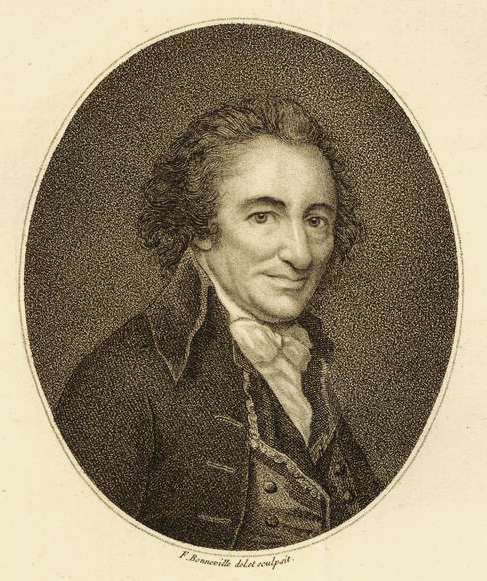Yes and no. I do not believe British efforts to create a true empire could have worked. The colonies had for many years been moving toward autonomy and were unwilling to accept the sort of imperial structure and dependency the British government tried to establish at the end of the Seven Years War, especially as there was no credible military threat on the North American continent to force them to rely on British arms. On the other hand, I could easily see an arrangement, something like dominionship, under which Americans would have remained part of the empire. If offered such an arrangement in the first months of the war, I believe most Americans would have happily accepted it.
–Dennis M. Conrad
Yes. Ultimately, perhaps by the mid-19th-century, British North America would have become independent in the same way Canada, Jamaica, and Australia became independent and self-governing under the British Commonwealth. Franklin thought this would happen naturally. The nature of the American Revolution though, was not inevitable.
–Robert J. Allison
I believe American independence was inevitable, not necessarily in 1776 but within decades. The continental colonies were growing too fast and as Paine pointed out there was something ridiculous about an island ruling a continent.
–Gordon S. Wood
No. Almost nothing is inevitable in history. One can easily envision counterfactual scenarios in which the American colonists, like their northern neighbors, resolved to remain within the British Empire and then achieved peaceful separation from Great Britain during the nineteenth century. For those who would argue for inevitability, the question becomes, when does a lasting independence become inevitable? October 1781? October 1777? May 1776? April 1775? June 1774? 1765? 1763? 1688? 1607? Or, for that matter, 1814? At any of these points, circumstances might have turned out very differently, or historical actors might have behaved differently and achieved some sort of peace and reunification.
–Benjamin L. Carp
“Inevitable” when? Certainly not in 1765 or 1768 or 1770. Nobody – not Samuel Adams or anyone else –spoke of independence in those years. (Myth alert: the notion that Adams did was trumped up by a Tory trying to frame him.) After the Tea Party, colonists differed over paying for the tea – and still no talk of independence. But when Parliament disenfranchised the people of Massachusetts, those people, in August-October 1774, threw off British rule everywhere outside of Boston, and these were the folks who first advocated independence – but Samuel and John Adams cautioned them to slow down so they wouldn’t scare off other colonists. Only after King George declared the colonies in open rebellion late in 1775, hired foreigners to shoot at Englishmen in America, and burned coastal towns was the idea of independence mainstreamed. Finally, at that point, I’d say declaring independence became inevitable, but Americans still needed to win a war to defend it.
–Ray Raphael
Independence was NOT inevitable. Quite the contrary. A British victory would have enabled them to turn the American colonies into another Ireland, with a fake aristocracy and a standing army to keep order. As early as 1775, the British were pushing the line that the Americans weren’t really English. They were a mix or a muddle of races, Irish, German etc. This was the kind of propaganda that they used to crush Ireland.
–Thomas Fleming
The only unassailable answer is, “So far as we know.” Historians don’t get to run experiments. Almost all of Britain’s other distant colonies have become independent, so we might conclude that political separation would have happened by this time anyway. But those other colonies gained autonomy in a world with a U.S. of A. and its example affecting things, so is their independence independent of U.S. independence?
All that said, I theorize that if the London government hadn’t tried to institute a tax that affected nearly every adult British subject in North America in 1765 (the Stamp Act), American colonists wouldn’t have developed the broad, united opposition to new taxation that lasted through other forms of taxes and other political issues and made independence feasible in 1776.
–J. L. Bell
No. Had the British made the overtures for peace even as late as 1775 and made the colonists full participants in the Empire the drive for independence would have faltered. After that it was going to be harder to put the genie back in the bottle, but we must always remember that the final results of the war could very easily had a different look had many things not occurred as they did. Without French aid the Americans would not have won anything remotely close to what they did if even one colony had broken free which is extremely doubtful.
–Jimmy Dick
Nothing in history is inevitable. Different decisions by key individuals at crucial points can have major consequences. Suppose, for example, that General William Howe decided to strike at the “soft underbelly” of the rebellion in 1776 by taking his forces to the South. Georgia and South Carolina lacked the resources to repel such an invasion, and the Americans would have been deprived of the five years in which they developed the infrastructure that supported partisan resistance in 1780. Also, southern Loyalists would not have been demoralized by persecution and thus more willing to assist the British. Howe could have quickly subdued Georgia and the Carolinas and moved to Virginia. It is hard to imagine that if Washington tried to march his army southward, the New Englanders would have gone. The British might have regained control of every colony south of Pennsylvania by the end of the 1776 campaign.
–Jim Piecuch
Would the British-American colonies eventually receive their independence? Yes, it is likely, especially if we look at Canada as a model. But these kinds of questions probably fall outside the realm of historical investigation. Having said that, I don’t think anyone in colonial America would have perceived independence as inevitable until sometime between 1775 and July 1776. The history of the British-American colonies is a story of growing Anglicization and British provincialism. It is not a story about the seeds of independence, planted in the soil of Jamestown and Plymouth, growing into a full-blown revolutionary moment that finally blossomed in 1776. If we take the long view, the American Revolution was one of the great surprises of the early modern Western world. Most informed observers would have said that it was “inevitable” that the colonists would continue to enjoy the political and economic benefits (among others) of being part of the British Empire.
–John Fea
American independence was inevitable, but victory in the American Revolution was not. The American colonies were filling up quickly and building a distinctly American culture. After the French were expelled from the West and Canada, the American colonists did not “need” the British any more.
However, victory in the American Revolution from 1775-7 was far from inevitable. It is easy to see how a more aggressive British strategy could have led to total victory over Washington’s Army. And it is easy to imagine that the Loyalist counter-insurrections that sputtered through 1776 would have gained more popular support if Washington’s Army was crushed. French entry into the war in 1778 changed the war by diverting British military resources from the U.S., after which the British posture went from offensive to largely defensive. This, coupled with the improvement of the Continental Army, created parity between the two militaries. At that point, the inability of the British to effectively support nascent Loyalist counter-insurrections in the South, made their defeat inevitable. But this was only the case after the first few years of the war.
–Michael Adelberg
No, as the example of Canada shows. In fact, but for the obstinacy of Parliament in ongoing taxation exercises, the issue would have gradually receded. Some sort of commonwealth of looser association of the American Colonies, as has spread throughout former British possessions, was the more likely outcome.
–Scott Syfert
Chatham and Burke knew how independence could be avoided, but it involved surrendering much of Parliament’s power over the colonists. Burke also glimpsed the possibility of using proffered concessions to play on the divisions in the Continental Congress, which included many delegates who opposed a break with Britain. Burke’s notion might have worked. But from the beginning the great majority in Parliament thought that in a worst case scenario the use of force would bring the colonists to heel. Given the political realities of the day, war appears to have been virtually inevitable. Even so, independence very likely would have been prevented had Britain had an adequate number of troops in America in April 1775 or a capable general to lead the campaign for New York in 1776, someone like Earl Cornwallis.
–John E. Ferling
Yes, I believe independence was not only inevitable but pretty much already existed before the revolution was conceived. The British had allowed the colonists far too much autonomy over the past 100 years to go back. The Stamp Act and the run to revolution can be described as an attempt by Parliament to bring the colonies back from a state of independence and into a state of subjugation instead of the other way around. We weren’t breaking away from a scheme of taxation but desperately avoiding the implementation of one. The King responded by sending an army of 25,000 against an armed populace of 1.5 million.
–Wayne Lynch
American Independence was not inevitable, but for some communities the American Revolution was unavoidable. Many communities and individual revolutionaries tried to reform imperial policies that offended them, at least initially.
For many British North Americans social and cultural issues stood at the center of their quarrels with imperial rule. For these Americans, the American Revolution was as much about social reform as it was about politics. For example, in Albany, New York many inhabitants rebelled and protested because they wanted Britons to accept them as fellow Britons. During the French and Indian War, the British Army had treated the Albanians poorly and violated their English constitutional rights with forcible quartering policies. The British Army violated the Albanians’ rights because they viewed them as “Dutch” or “Dutchmen,” not as Britons. Many in Albany embraced the Revolution as a movement for social reform. However, they became wary as talk and protests turned towards war and as war turned towards independence.
–Elizabeth M. Covart
Once the British turned their focus to their Southern Campaign in 1779, some form of American independence was inevitable. They controlled only New York and Philadelphia, had suffered significant losses in troops, were squabbling in Parliament, and now faced a war in the Caribbean. The only thing still to be decided was what the borders of the new country would look like.
–Daniel J. Tortora
No. While many political, economic, and demographic forces pointed toward independence, few individuals in 1774 would admit to anything other than being proud subjects of the British Empire. North American inhabitants generally felt comfortable living in provinces dominated by English language, culture, and values. I believe that a combination of more conciliatory British ministerial policies and, later, decisive American battlefield defeats, might have combined to avert or neutralize the American Rebellion. While hindsight always makes the outcome appear inevitable, rather than full independence the North American provinces might have achieved something akin to British Commonwealth status. We would have done so far earlier than Canada and might have continued to number among other realms within the empire where “the sun never sets.”
–Samuel A. Forman
Probably nothing short of full-blown secession would have appeased radicals like Samuel Adams or Patrick Henry, but the growing anger of many colonial Americans would have been assuaged had the British government made two concessions. The first was simply colonial representation in Parliament, a correction to an injustice forefront in American minds (“no taxation without representation” is a constant drumbeat in the letters of William Pitkin, governor of Connecticut in the years after the Stamp Act crisis). While such a system would have likely enfranchised male landowners alone, even this imperfection would have dissipated much of the emotion that led to the Boston Tea Party. Secondly, England needed to treat American merchants the same as their English colleagues. American colonists thought of themselves as English and even fought and died for Britain in the recent French and Indian War; yet under mercantilism, they were treated as suppliers of raw materials and captive consumers who, unlike England-based merchants, were prevented from trading directly with most foreign markets. This in turn sowed widespread smuggling and disregard for British authority in the colonies. If the American Revolution was inevitable, it was only because of Parliament’s shortsightedness.













7 Comments
Besides the restrictions of the Navigation Acts, the colonies were, throughout the first half of the eighteenth century, if not independent then self-governing. In the 1760s and 1770s, we get the first systematic attempts by the British to rein in the assemblies and the degree of colonial self-governance, which ended up resulting in the Revolution. In terms of the counterfactual, American independence was probably inevitable, though not necessarily in the eighteenth century. Without the Revolution, it is easier to see a scenario well into the nineteenth century resulting in independence than one in which the colonies remained under British control. Paine understood that if the status quo were left in place, at some point the colonies would simply become too big and too important economically to remain within the empire or, at least, under its subjection (in fact, he thought that was already the case in 1776). Given the sustained demographic and economic growth, Franklin believed that the seat of power in the British empire would eventually switch to North America. Of course, what would have likely been very different would have been the nature of the act of separation. In the end, I think American independence was pretty much an inevitability, but the American Revolution was not.
The American war was inevitable because the Colonists tried to stop the 7 years of war but the British created a true empire which led to more and more years of war
The American Revolution was not avoidable because the British taxed the colonists way too heavily.
The colonists were not, in fact, being taxed heavily, and the amount of taxes were not, in general, the point of dispute. The issue was whether or not Parliament had the right to tax the colonists at all. The charters of colonies like Rhode Island explicitly said that the colony had the right to levy its own taxes; when Parliament passed laws levying taxes, colonists saw this as a violation of their rights.
The tea tax and the Boston Tea Party provide an excellent example. Parliament engineered a scheme by which the cost of English tea, including the tax, would be less than the cost of tea from other sources – a clever way to assert the right to tax without subjecting the colonies to financial hardship. Colonists protested anyway, recognizing that, in their view, their rights were being violated regardless of the actual cost of the taxed goods.
Many writers today oversimplify the issue by saying that the tax rates were too high; perhaps they’re infusing modern perspectives on tax rates into their analysis.
Correct, taxes were, in fact, low and hardly onerous making the North American colonies some of the lowest taxed in all of the nascent British Empire.
Another distinguishing factor was the “internal” versus “external” aspects coming into play. Colonists did not argue with reimbursing those costs associated with the general security of the colonies out on the high seas, but when they crossed the line and came to affect their internal workings, they objected as being imposed without their input.
They also believed they had paid the high cost of protecting themselves from the French in the last war and deserved that recognition from London. This ran counter to the British viewpoint that the colonies had to contribute to the high costs they had incurred in providing their external defense. It also helps to remember that London reimbursed the colonists with scarce specie for their costs in fighting on its behalf during King George’s War just before the 7YW and which, no doubt, fostered the colonists’ reliance on further monetary support.
Opposition to taxes may have indeed been the key issue creating the movement toward independence, but by the time of the Declaration of Independence, Americans had moved well beyond that grevience and on to a much longer list of oppressions to justify revolution. Taxation without consent, after all, was #17 out of a list of 27 “facts” listed in the Declaration designed to “prove” that GB had exercised absolute tyranny over the former colonies. What made independence inevitable it seems to me was this shift from a single constitutional dispute (the authority to impose an internal tax without consent on the colonies) to much broader justifications for self governance. With that came of course a shift from blaming Parliament to finally targeting the king. Paine’s pamphlet Common Sense helped Americans change the target. Once that was accomplished, independence was around the corner. To me, that and the ongoing undeclared war with GB made independence inevitable in ’76.
P.S., please correct “grievance” in my previous post! Thanks.